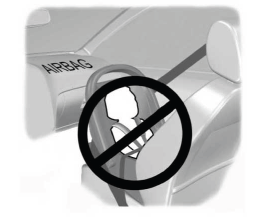Lincoln Aviator: Instrument Panel and Console / Removal and Installation - Instrument Panel
Special Tool(s) /
General Equipment
Removal
NOTE:
Removal steps in this procedure may contain installation details.
-
Drain the cooling system.
Refer to: Engine Cooling System Draining, Vacuum Filling and Bleeding (303-03A Engine Cooling - 3.0L EcoBoost, General Procedures).
-
Evacuate the refrigerant.
Refer to: Air Conditioning (A/C) System Recovery, Evacuation and Charging - Vehicles With: R1234YF Refrigerant (412-00 Climate Control System - General Information, General Procedures).
-
Remove the nut from the thermostatic expansion valve manifold and tube assembly.
Torque:
155 lb.in (17.5 Nm)
-
Remove the wiper linkage assembly.
Refer to: Wiper Linkage Assembly (501-16 Wipers and Washers, Removal and Installation).
-
NOTE:
Plug the heater core tubes.
Disconnect the heater hoses.
-
Remove the LH cowl to in-vehicle cross beam bolts.
Torque:
18 lb.ft (25 Nm)
-
Remove the RH cowl to in-vehicle cross beam bolt.
Torque:
26 lb.ft (35 Nm)
-
Remove the floor console.
Refer to: Floor Console (501-12 Instrument Panel and Console, Removal and Installation).
-
Release the clips and remove the RH instrument panel end cap.
Use the General Equipment: Interior Trim Remover
-
Release the clip and remove RH instrument panel gap panel.
Use the General Equipment: Interior Trim Remover
-
Release the clips and remove the RH scuf plate.
-
Disconnect the electrical connector.
-
Release the clips and remove the LH instrument panel end cap.
Use the General Equipment: Interior Trim Remover
-
Release the clip and remove LH instrument panel gap panel.
-
Remove the LH scuff plate
-
Remove the hood latch release handle.
-
Release the clips, disconnect the electrical connector and remove the LH scuff plate.
-
Remove the A-pillar trim panel.
Refer to: A-Pillar Trim Panel (501-05 Interior Trim and Ornamentation, Removal and Installation).
-
Disconnect the electrical connectors, release the harness retainers and position aside the electrical harness.
-
Remove the LH insulation panel.
-
Remove the push pins
-
Remove the bolt.
-
Remove the nut.
-
Disconnect the electrical connector.
-
Lower the steering column opening trim panel.
-
NOTE:
Accessed through the steering column opening trim panel.
Disconnect the electrical connectors.
-
-
Depress the tabs and position aside the electrical harness.
-
Disconnect the electrical connectors.
-
Detach the harness retainers.
-
Disconnect the electrical connector.
-
Remove the pushpins the nut and the RH insulation panel.
-
Remove the nut.
Torque:
62 lb.in (7 Nm)
-
Disconnect the electrical connectors.
-
.jpg) WARNING:
Do not reuse steering column shaft bolts. This may
result in fastener failure and steering column shaft detachment or loss
of steering control. Failure to follow this instruction may result in
serious injury to vehicle occupant(s).
WARNING:
Do not reuse steering column shaft bolts. This may
result in fastener failure and steering column shaft detachment or loss
of steering control. Failure to follow this instruction may result in
serious injury to vehicle occupant(s).
Remove and discard the steering column shaft bolt and
separate the steering column shaft from the steering column.
Torque:
22 lb.ft (30 Nm)
-
Remove the bolts and the instrument panel center support bracket.
Torque:
106 lb.in (12 Nm)
-
NOTE:
Leave one bolt finger tight to hold the instrument panel in place prior to the final step.
Remove the LH insturment panel to a-pillar bolts.
Torque:
26 lb.ft (35 Nm)
-
NOTE:
Leave one bolt finger tight to hold the instrument panel in place prior to the final step.
Remove the RH insturment panel to a-pillar bolts.
Torque:
26 lb.ft (35 Nm)
-
NOTE:
To avoid damaging the instrument panel, an assistant is required when carrying out this step.
NOTE:
Make sure not to damage the instrument panel when removing the instrument panel from the vehicle.
NOTE:
Make sure that all electrical connectors and wiring
are not hindered before removing the instrument panel or damage to the
components may occur.
Remove the instrument panel through the RH door opening.
Installation
-
To install, reverse the removal procedure.
-
Fill and bleed the cooling system.
-
NOTE:
Anytime the parking brake switch electrical connector has been disconnected, the EPB system is deactivated and a DTC is stored in the EPB module. Perform the following step to restore the EPB system and clear the EPB module DTC.
Apply and release the parking brake twice within 5
seconds, pausing with the switch in the NEUTRAL position for
approximately one-half second between each apply and release. Using a
diagnostic scan tool, clear the EPB module DTC.
Special Tool(s) /
General Equipment
Interior Trim Remover
Removal
NOTE:
Removal steps in this procedure may contain installation details...
Special Tool(s) /
General Equipment
Interior Trim Remover
Removal
NOTE:
Removal steps in this procedure may contain installation details...
Other information:
I..
If you operate your vehicle primarily in any
of the following conditions, you need to
perform extra maintenance as indicated. If
you operate your vehicle occasionally under
any of these conditions, it is not necessary
to perform the extra maintenance...
.jpg)
.jpg)
.jpg)
.jpg)
.jpg)
.jpg)
.jpg)
.jpg)
.jpg)
.jpg)
.jpg)
.jpg)
.jpg)
.jpg)
.jpg)
.jpg)
.jpg)
.jpg)
.jpg)
.jpg) WARNING:
Do not reuse steering column shaft bolts. This may
result in fastener failure and steering column shaft detachment or loss
of steering control. Failure to follow this instruction may result in
serious injury to vehicle occupant(s).
WARNING:
Do not reuse steering column shaft bolts. This may
result in fastener failure and steering column shaft detachment or loss
of steering control. Failure to follow this instruction may result in
serious injury to vehicle occupant(s).
.jpg)
.jpg)
.jpg)
.jpg)
.jpg)
 Removal and Installation - Glove Compartment
Removal and Installation - Glove Compartment Removal and Installation - Instrument Panel Upper Section
Removal and Installation - Instrument Panel Upper Section
